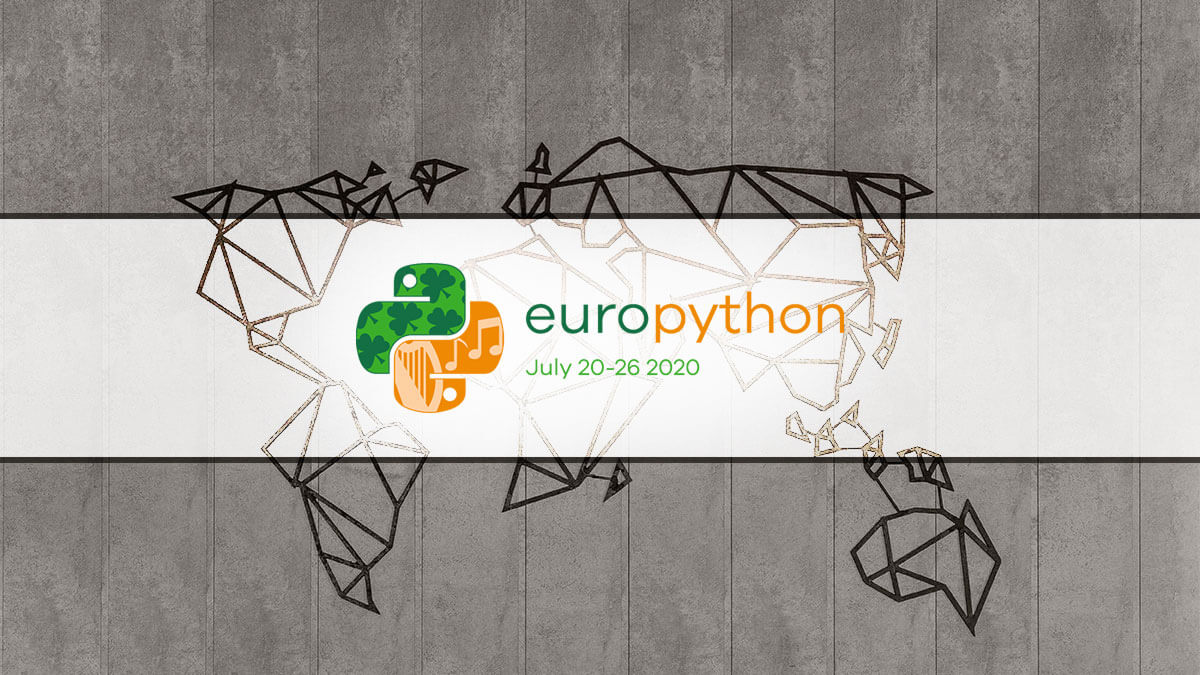
Hello Veturilians! George Zisopoulos and Fanis Petkos here! Here we are, on this rare occasion, to share a few details from our participation to the EuroPython 2020 conference. Although we are developers — not bloggers — we thought it would be very useful to write and share all the details of our experience as guest speakers, at first hand.
Introducing EuroPython
For those of you who may not know the details of this spectacular event, EuroPython started in 2002 under the name: “European Python and Zope Conference”. Since then, it has evolved to the biggest European conference for the Python programming language and its issues.
This year, the conference was different than usual. This was the first time it took place as an online conference, from the 23rd until the 26th of July 2020. The original plan was for it to take place in Dublin, from the 20th until the 24th of July. However, due to the COVID-19 pandemic it was decided that it would be better if it were an online experience, instead of a normal conference at a physical location. So, the Dublin event was postponed for 2021.
The conference, which involved more than a 1000 participants and 120 sessions, included a variety of activities of every kind. Including talks, posters, enlightening talks and panels. In other words, it was a paradise for programmers!
Why we participated
For us, it was a great challenge to take part in such a conference, as speakers. We knew the event and we had just the use case we needed in our hands. At least, for those who would want to be involved in the Internet of Things (IoT) and Python. Our goal was to demonstrate all the difficulties we met during our attempt to reach a decent result. We hoped that we would inspire junior developers, who may be in doubt, to not think twice before being involved in such projects. For us, it’s always a pleasure to see young developers write in the programming language we love, Python. So, we didn’t waste any time; we jumped at the opportunity and submitted our proposal.
Ensuring data integrity with asynchronous programming, in a cloud IoT core
Our presentation entitled “Ensuring data integrity with asynchronous programming, in a cloud IoT core” was focused on the path we followed until we achieved a satisfactory solution for the “ingesting” part of our service. By the term “ingesting”, we only describe a part of the Internet of Things reality. More specifically, how we made sure that all of the data sent from an OBDII device are properly stored into the database; and how the values stored can be used to make sense to the final user. Our presentation didn’t include just that, though. We also greatly emphasized on the obstacles and speculations we were faced with, until we reached the desired result.
Moreover, we felt it necessary to point out that the technology used to create a product or service is not the only important element. We also found it necessary to highlight the need for the existence of a structured flow. And a well-defined view/perception of the integrity of the information; such as we provide it to the final user.
How building Veturilo has helped us
This specific part, as we described it, constitutes the essence of how Veturilo works. At a technical level we’re always sure that all user information will be saved; and able to be presented to them appropriately, through our application. Thus, our end-users will be certain, when managing their fleet, of any potential problems that may occur to their vehicles; and whatever lies within the broad spectrum of vehicle management services.
Therefore, since we’re sure of the result, we believe that is important enough to mention to an open community; such as that of Python. After all, in spite of attempting to encourage more inexperienced developers, we think it’s always useful to evaluate your work. In other words, some self-criticism is always useful in testing your project. And in searching for new, more innovative solutions to add to the essence of your product/service.
That is, after all, the main need and request from any “technical” team. To progress, to evolve their programming code and design; and, of course, their testing and implementation. Abiding by those principles, the team’s goal here, at Veturilo, is to use the most contemporary techniques possible. That is, in order to guarantee the best possible results for our customers.
Thoughts, feelings and next steps
Undoubtedly, EuroPython 2020 gave us the opportunity to receive some valuable feedback. And we, as the Veturilo tech team, have already set a new goal; to be ready to respond to the continuously increasing needs of our platform users.
For all intents and purposes, this was a really special experience to us. And, despite our initial stress over it — that, thankfully, proved to be productive — and the long hours of preparation, we only have positive feelings after this significant conference.
If you’re asking, we’d like to encourage anyone who has even the slightest self-doubt, to sign up for a future EuroPython conference. You won’t regret it! 🙂